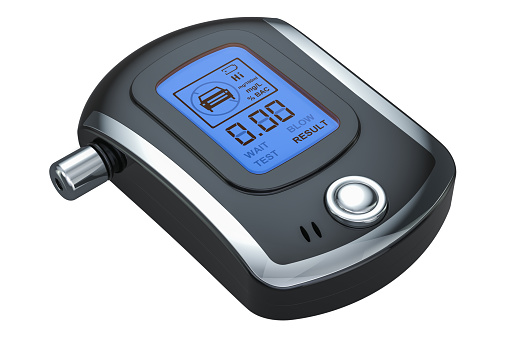
The holidays are coming up, and as expected, police across the Sunshine State will be aggressively pursuing DUI offenders.
Before making an arrest, police need enough evidence to determine if you've been driving drunk. Police often rely on breathalyzer readings to charge someone with DUI. As experienced Florida DUI attorneys, we have witnessed how inaccurate these devices can be. A recent New York Times article, however, has shed more light on the issue.
How accurate are breath tests?
According to the Times investigation, breathalyzers often produce skewed results, despite claims about how accurate they are. Within the past year alone, judges in Massachusetts and New Jersey have thrown out more than 30,000 breath test results due to human error and poor governmental oversight. What's even more alarming, some of these devices have reportedly yielded breath test results that were 40 percent too high.
The NY Times investigation also found that skewed results are often caused by:
- Poor device maintenance
- Poor standards in police departments
- Lack of experience and expertise in using these devices
- In some cases, results are tampered with in a lab
- Programming errors in device software
- Disabled device safeguards
This issue, which has landed numerous people in jail, has begun receiving increased scrutiny from lawyers, scientists, law enforcement officers, and judges across the United States.
According to the NY Times investigation, some inexpensive and "easy to maintain" devices can produce inaccurate results. The inaccurate results can be due to a person having trouble breathing, the use of toothpaste, mouthwash, or breath mints, or even hand sanitizer. While many devices aren't admissible in court, they do give officers the green light to make arrests and administer more in-depth breath tests after booking suspects.
One man who was arrested for DUI in Massachusetts failed both breath tests. After being booked at the nearest state police barracks, the man was sure he wasn't drunk. He opted to take the in-station breath test to get the process over with and be on his way. The machine ended up reading a BAC level of 0.08 percent — in contrast with the 0.13 percent read by the arresting officer's handheld breathalyzer. At that moment, he was charged with operating under the influence, had his driver's license confiscated, and his vehicle towed.
Challenging breath test results
For years, forensic examinations of breathalyzer devices and software has been a challenge. Complicating matters, these devices aren't available to the public, making it difficult for defense lawyers to have access to them.
In 2007, the New Jersey Supreme Court allowed defense lawyers software access to Dräger's Alcotest 7110 device. Their experts found "thousands of programming errors." According to court records, the device was deemed "generally scientifically reliable." The court, however, acknowledged the mechanical and technical flaws in the device that could produce inaccurate readings.
Dräger claims to have fixed these flaws. They now advertise the Alcotest 7110 as the only device with software that "has been reviewed by independent third parties and approved by a Supreme Court decision."
In 2005, the CMI Intoxilyzer 8000 device was tested in a toxicology lab in Vermont and found to be inaccurate on nearly every test. The same device, however, was later used in some other states, including Florida. After technicians found that the devices were yielding inaccurately low results, a CMI engineer began making modifications to all devices. These modifications, however, were later challenged in court by both judges and defense lawyers.
Breath tests vs. blood tests
The only way to truly get an accurate BAC reading is to administer a blood test. This, however, requires a warrant. Breath tests, on the other hand, do not. There are consequences for refusing to take a blood test. Under Florida's implied consent law, you could still be arrested, charged with a misdemeanor, and lose your driver's license for one year for a first-time refusal. In addition, you will have to wait 90 days to obtain a hardship license.
The results of a breath test, however, can be contested in court. If you were arrested and charged with DUI, be aware that anything you tell police can be used against you in court. If you admit guilt based on a potentially false breath test reading, it's unlikely that your charges can be fought in court. Your best course of action when arrested for DUI is to consult with an experienced Florida DUI lawyer as soon as possible.
As former prosecutors, the attorneys at Aguilar & Sieron, P.A. know how the system works and what type of evidence is admissible in court. We have real courtroom experience helping those arrested for DUI fight the charges. To learn how we can help you, contact us online today.
